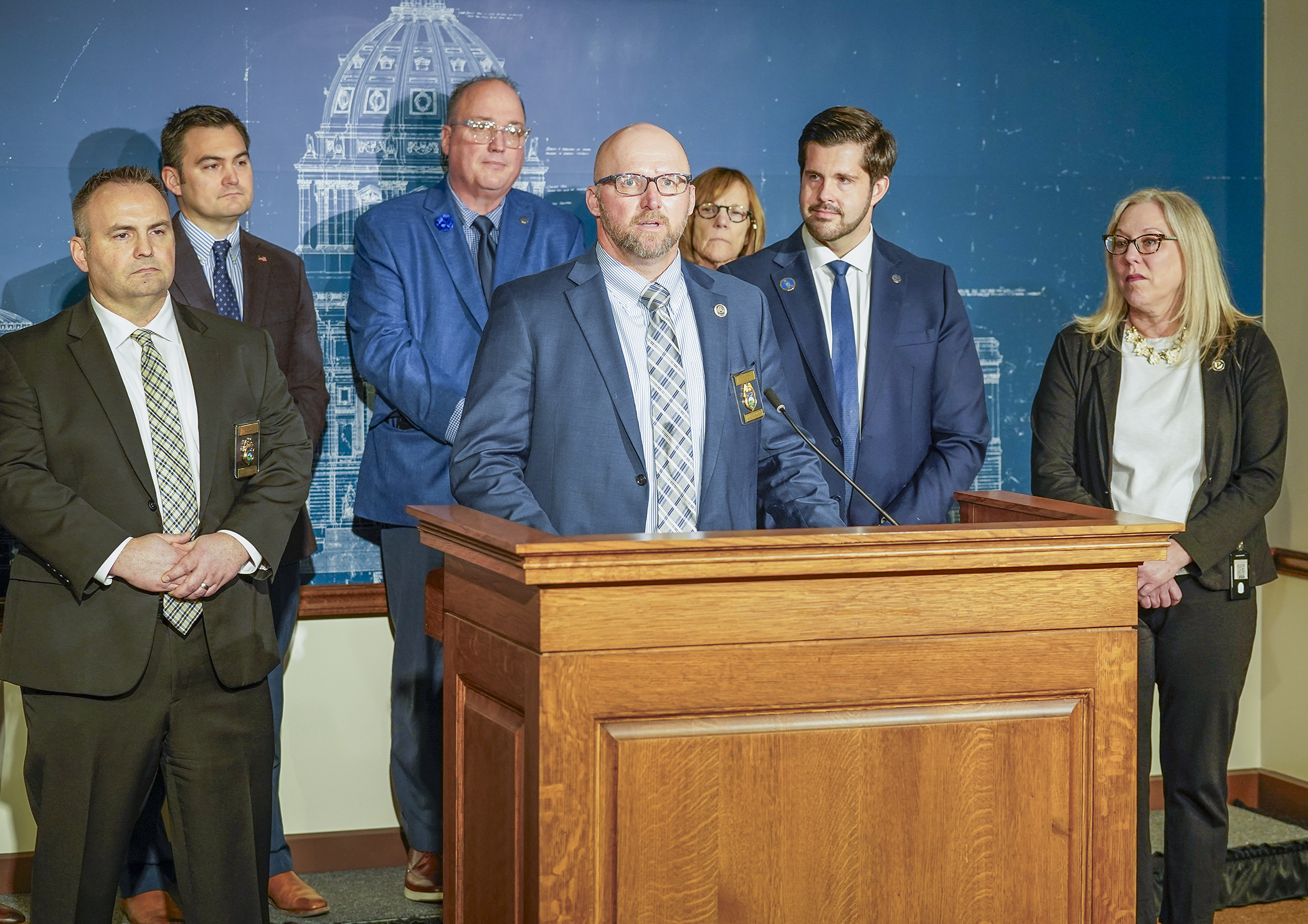Proposed scholarship aims to attract new law enforcement officers, avoid looming workforce crisis

Across the state, law enforcement agencies have “Help Wanted” signs out.
There are now more than 1,000 open law enforcement positions across the state, a number expected to grow because about 2,700 current law enforcement officers are set to retire in the next few years.
Add that all up and Minnesota potentially faces a huge lack of officers.
The so-called “Minnesota Law Enforcement Scholarship Act,” is an effort to solve the looming law enforcement employment crisis. It was laid over by the House Higher Education Finance and Policy Committee on Tuesday for possible inclusion in a committee bill.
Sponsored by Rep. Dan Wolgamott (DFL-St. Cloud), HF2454 would create a new, last-dollar, full tuition and fee grant program for Minnesota law enforcement officers and their dependents attending public colleges and universities in the state.
“The goal is to attract new officers to come to the state of Minnesota, to retain those officers that we have in that potential retirement period, and to empower and educate the next generation of law enforcement,” Wolgamott said.
The bill would limit the scholarship to students that have not already obtained a baccalaureate degree. The recipient must be a current peace officer employed by a Minnesota law enforcement agency, a dependent child of such an officer, or a dependent child of a former such officer who suffered a total and permanent duty disability.
A student who qualifies as a peace officer must be enrolled in a baccalaureate degree related to law enforcement.
“This is a crisis situation that impacts our police department's ability to have the men and women in uniform on the street that we need to keep our communities, keep our homes, keep our schools, keep our workplaces safe,” Wolgamott said. “This is a crisis, and the state of Minnesota needs to use every single tool in its toolbox to address this law enforcement workforce shortage.”
Mark Ross, president of the St. Paul Police Federation, fully backs the plan.
“For several years now, many of us in our profession along with several lawmakers have been looking for ways to recruit and retain police officers,” he said. “… We have a lot of trouble coming up with ways to both retain our current officers and attract new officers, and this is a great way to do that.”
The scholarship would be on a semester-by-semester basis and there is no requirement that the recipient work in Minnesota after they graduate.
“We found that doing such requirements are really difficult to enforce,” Wolgamott said. “When people come to Minnesota, when they get their education in Minnesota, by far the vast majority of those folks stay and work in Minnesota, and that's what we expect to happen.”
Related Articles
Search Session Daily
Advanced Search OptionsPriority Dailies
Speaker Emerita Melissa Hortman, husband killed in attack
By HPIS Staff House Speaker Emerita Melissa Hortman (DFL-Brooklyn Park) and her husband, Mark, were fatally shot in their home early Saturday morning.
Gov. Tim Walz announced the news dur...
House Speaker Emerita Melissa Hortman (DFL-Brooklyn Park) and her husband, Mark, were fatally shot in their home early Saturday morning.
Gov. Tim Walz announced the news dur...
Lawmakers deliver budget bills to governor's desk in one-day special session
By Mike Cook About that talk of needing all 21 hours left in a legislative day to complete a special session?
House members were more than up to the challenge Monday. Beginning at 10 a.m...
About that talk of needing all 21 hours left in a legislative day to complete a special session?
House members were more than up to the challenge Monday. Beginning at 10 a.m...